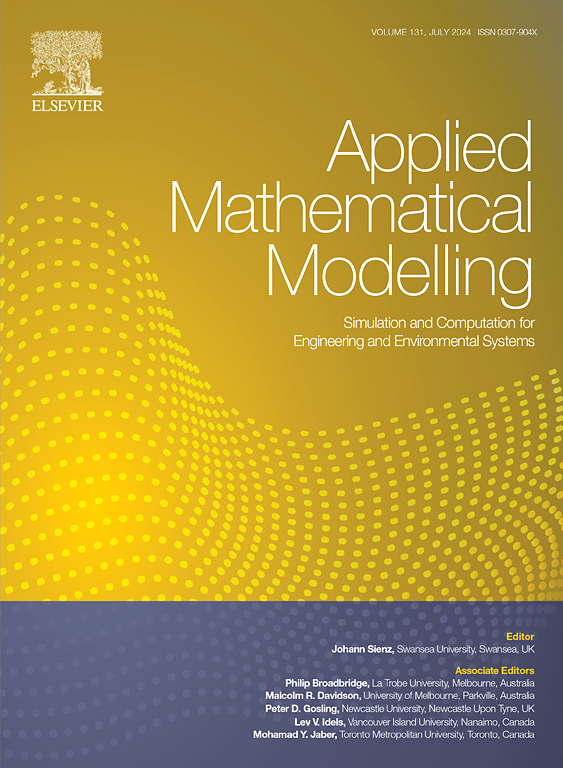Tsallis entropy penalized robust 1-bit compressive sensing against sign flips
IF 4.4
2区 工程技术
Q1 ENGINEERING, MULTIDISCIPLINARY
引用次数: 0
Abstract
One-bit compressive sensing (1BCS) has emerged as a prominent research area owing to its unparalleled advantages in sampling efficiency and hardware implementability of signal reconstruction. However, existing 1BCS methodologies encounter challenges of mitigating sign-flip noise and depending on prior knowledge of signal sparsity or noise level. To address these limitations, we propose a novel method named robust generalized fixed-point continuation via Tsallis entropy (RGFPC-TE). RGFPC integrates the fixed-point continuation (FPC) framework with an adaptive sign-flip detection mechanism. This integration enables the algorithm to iteratively refine measurements and recover the original signal without requiring prior of sparsity or noise level. Moreover, we theoretically prove that incorporating TE into the FPC framework enhances signal sparsity and energy concentration. Numerical experiments on synthetic signals and real images demonstrate the superiority of RGFPC-TE. In real-image reconstruction tasks, our method achieves up to 5 dB higher peak signal-to-noise ratio (PSNR) than state-of-the-art 1BCS algorithms.
Tsallis熵对符号翻转进行了鲁棒的1位压缩感知
由于在采样效率和信号重构的硬件可实现性方面具有无可比拟的优势,比特压缩感知(1BCS)已成为一个突出的研究领域。然而,现有的1BCS方法在减轻符号翻转噪声和依赖于信号稀疏度或噪声水平的先验知识方面遇到了挑战。为了解决这些问题,我们提出了一种基于Tsallis熵的鲁棒广义不动点延拓方法(RGFPC-TE)。RGFPC将不动点延拓(FPC)框架与自适应符号翻转检测机制相结合。这种集成使算法迭代地细化测量和恢复原始信号,而不需要先验的稀疏性或噪声水平。此外,我们从理论上证明了将TE纳入FPC框架可以增强信号稀疏性和能量集中度。在合成信号和真实图像上的数值实验证明了RGFPC-TE的优越性。在真实图像重建任务中,我们的方法比最先进的1BCS算法实现高达5 dB的峰值信噪比(PSNR)。
本文章由计算机程序翻译,如有差异,请以英文原文为准。
求助全文
约1分钟内获得全文
求助全文
来源期刊

Applied Mathematical Modelling
数学-工程:综合
CiteScore
9.80
自引率
8.00%
发文量
508
审稿时长
43 days
期刊介绍:
Applied Mathematical Modelling focuses on research related to the mathematical modelling of engineering and environmental processes, manufacturing, and industrial systems. A significant emerging area of research activity involves multiphysics processes, and contributions in this area are particularly encouraged.
This influential publication covers a wide spectrum of subjects including heat transfer, fluid mechanics, CFD, and transport phenomena; solid mechanics and mechanics of metals; electromagnets and MHD; reliability modelling and system optimization; finite volume, finite element, and boundary element procedures; modelling of inventory, industrial, manufacturing and logistics systems for viable decision making; civil engineering systems and structures; mineral and energy resources; relevant software engineering issues associated with CAD and CAE; and materials and metallurgical engineering.
Applied Mathematical Modelling is primarily interested in papers developing increased insights into real-world problems through novel mathematical modelling, novel applications or a combination of these. Papers employing existing numerical techniques must demonstrate sufficient novelty in the solution of practical problems. Papers on fuzzy logic in decision-making or purely financial mathematics are normally not considered. Research on fractional differential equations, bifurcation, and numerical methods needs to include practical examples. Population dynamics must solve realistic scenarios. Papers in the area of logistics and business modelling should demonstrate meaningful managerial insight. Submissions with no real-world application will not be considered.
 求助内容:
求助内容: 应助结果提醒方式:
应助结果提醒方式:


